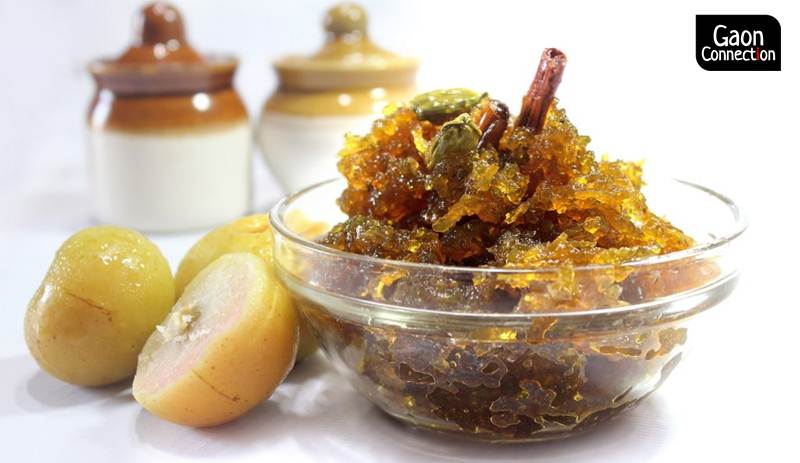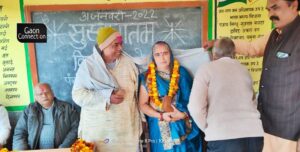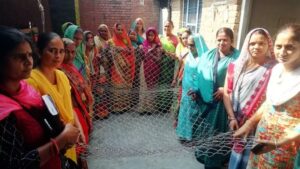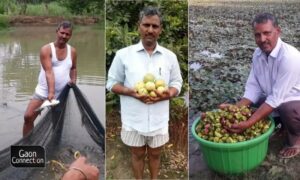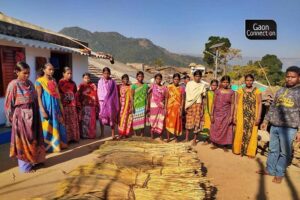Panna, Madhya Pradesh
Something sweet is simmering at Dahlaan Chauki, a village in Madhya Pradesh, 70 kilometres away from its more famous neighbour the Panna National Park and 400 kilometres north east of the state capital Bhopal.
Dahlaan Chauki is making news, thanks to enterprising women like 60-year-old Bhagwati Devi. Her amla murabbas (sweet pickled Indian gooseberries) are famous not just in the district and state, but also across the country and abroad.
And, watching Bhagwati make a success of her pickling skills, other women in the village have also taken to it, creating a village industry that is putting Panna on the murabba map, besides providing a source of income for women who can work from home and earn a livelihood.
The Government of Madhya Pradesh has also included the amla of Panna in its ‘One District, One Product’ scheme that promotes small scale industry and local produce.
Women SHGs pickle their way to fame
Dalhaan Chauki falls on the Panna-Ajaygarh route. There is a simple board with ‘Ma Durga Self Help Group’ (SHG) written on it and beside a table laden with her murabba, neatly packed, stands Bhagwati Devi who is also the president of the SHG. “Many people stop here in their cars and carry away my murabba,” Bhagwati told Gaon Connection.
“We have managed to sell fifteen quintals [1,500 kilogrammes] of murabba during the pandemic. In fact the demand went up,” she added.
The SHG has been making murabbas and other products for about 10 years now and looking at the growing success of the venture, many other women in the village joined in. There are presently 10 SHGs in the village with over a 100 women working in them.
Also Read: In a first, Chhattisgarh’s women self-help groups facilitate record collection of sal seeds
The well travelled amla
According to Dashrath Yadav, who helps his wife Bhagwati in the enterprise, the SHG made nearly 30-40 quintals [3,000-4,000 kgs] of murabba every season, besides pickles, candy, juice, etc. The products have travelled to Bhopal, Delhi, Mumbai, Ahmedabad and even to parts of Kerala as part of events to promote amla, he said. He said the SHG had also won many awards.
Also Read: The season’s just right to pickle mango, amla, drumstick and lemon
“But, the yield of the amlas was not too good this year,” Dashrath told Gaon Connection. “We do not use the wild amla growing in the forests. We buy amlas cultivated by the local farmers,” he said.
Meanwhile, the state government is trying to promote Panna’s amla. “It is the aim of the government to promote the amla, which carries many medicinal qualities, not just within the country but even abroad,” Sanjay Kumar Mishra, district collector of Panna, told Gaon Connection. This would be a boon for the over one million people who live in Panna district, 45 per cent of which is covered in forests, where the amla grows wild in abundance. This move will also go a long way in making Madhya Pradesh a self reliant state, Mishra said.
Also Read: The Sour Truth: Has the amla’s glory days ended in Uttar Pradesh?
Getting self reliant with the gooseberry
Farmers in the state are being encouraged to cultivate amla, not just in their farms, but also in empty spaces, Mahendra Mohan Bhatt, assistant director, Panna’s horticulture department told Gaon Connection.
Besides growing wild in the jungles, there are amla orchards in 500 hectares of land in the district. Many farmers are also planting saplings in their land, Bhatt said.
According to the horticulture department, there are big schemes in the pipeline to promote products made out of amla. “The department is also organising training workshops for women in the district in the making of products from amla. These workshops will enable women to work from home and become independent and self reliant,” Bhatt said. The aim is to make Panna district synonymous with amla, he concluded.
Read the story in Hindi.

